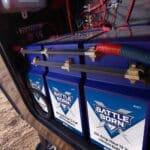
MENUMENU
TALK TO AN EXPERT
Special Hours: 7AM – 6PM PST
TALK TO AN EXPERT
Special Hours: 7AM – 6PM PST
Battery terminal corrosion is one of the most common — and annoying — problems for anyone using lead-acid batteries. It can cause starting issues, reduce performance, and even damage electronics.
In this guide, we’ll cover how to clean corroded battery terminals, why corrosion happens, how to prevent it, and why switching to lithium batteries is the permanent solution.
⚠ Safety Note: Battery corrosion only occurs on lead-acid batteries, which are toxic and dangerous. Always work in a well-ventilated area. Lead-acid batteries can release hydrogen and hydrogen sulfide gas, which is explosive and toxic. Accidentally shorting battery wires can also cause dangerous sparks, which can burn and cause damage to the eyes. Always wear safety glasses and gloves when working with lead-acid.
Tools & Supplies You’ll Need:
Step-by-Step:

Corrosion is a problem that occurs with lead-acid batteries when the volatile chemicals or gases inside a battery escape and come into contact with the highly-conductive metal of the battery terminal. The batteries can release gases filled with hydrogen, sulfur, and acids that damage nearby battery terminals if not vented properly.
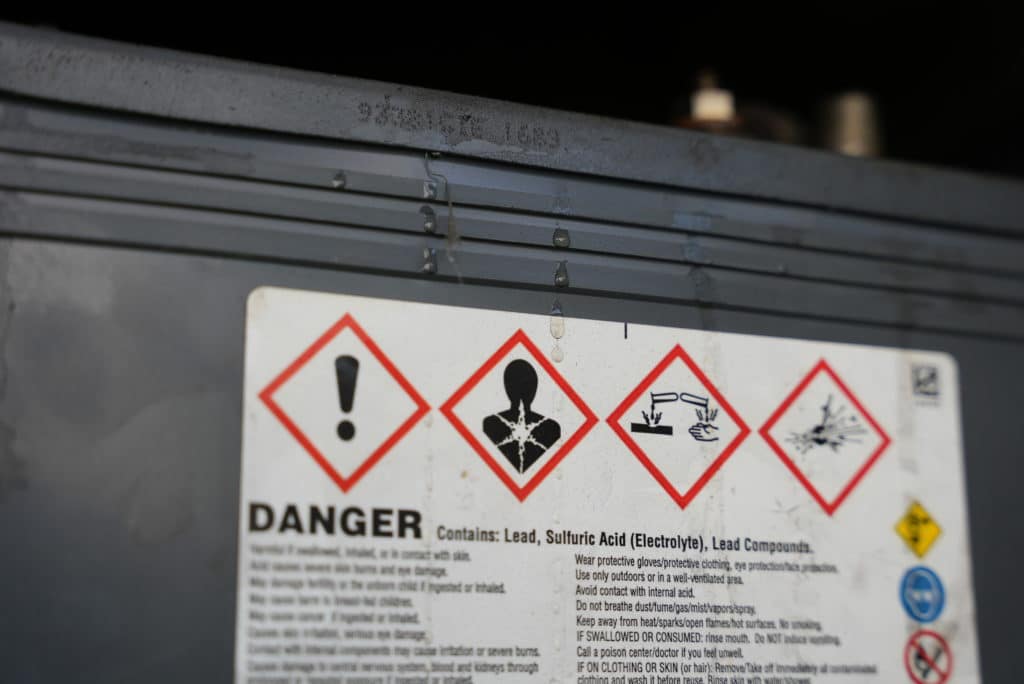
There are a wide variety of reasons this might happen. For example, an owner might add too much water during battery maintenance, causing battery acid to escape. Overcharging is another frequent culprit for corrosion, especially when the damage appears limited to the battery’s positive terminal. Generally speaking, anything that exposes your battery terminals to reactive materials (including bad weather) can lead to battery corrosion.
The bottom line: Corrosion is a sign your battery is venting harmful gases. These gases damage metal and electronics — and they’re not good for your lungs either. Luckily, high-quality lithium batteries like our Battle Born line do not emit any gasses and will never corrode terminals! This is just one of the reasons our batteries are so much safer than old lead-acid technology.
Battery terminal corrosion generally impedes the flow of power from the battery to the device using it. This less-efficient power transfer means you’ll likely notice decreased power output from your batteries. In cases of extreme corrosion, the battery may not provide enough energy, meaning your device or vehicle may not start.

If you are attempting to draw a lot of current through corroded terminals, they may also begin to overheat. This can damage cables and the batteries. This is because the corrosion increases resistance in the connections.
Battery corrosion can appear in a few different ways. Most often, you’ll see a buildup of flaky or crumbly material around the battery terminal. This material is typically white, light blue, greenish, gray, or brown. The color will vary depending on the exact type of battery and metal it is interacting with.
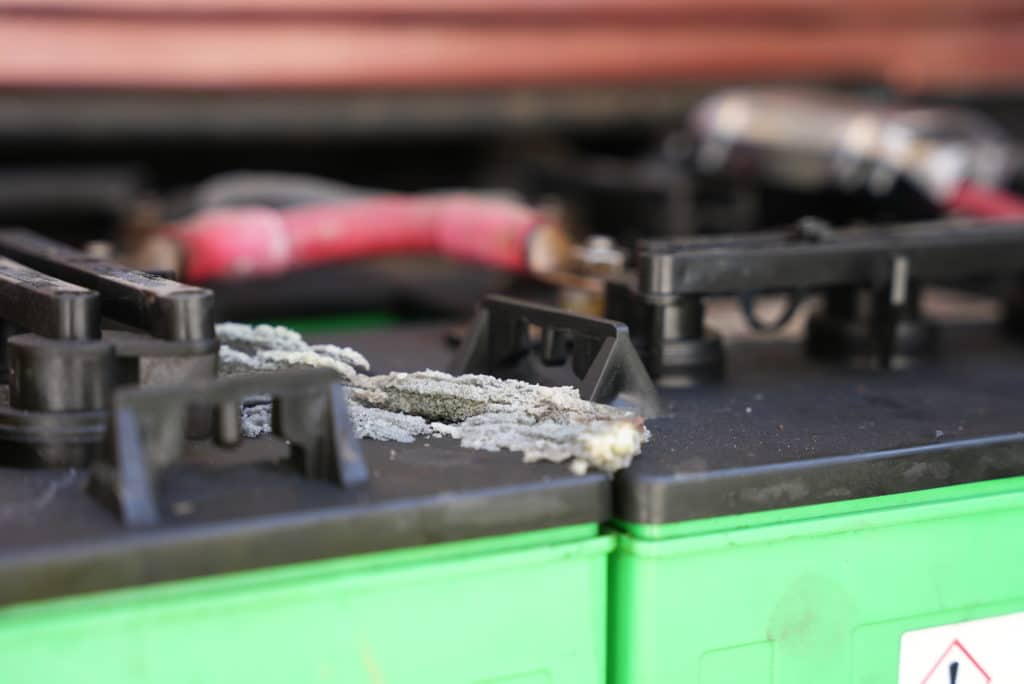
Not necessarily. Battery terminal corrosion can certainly signify that your battery isn’t operating correctly. This is often the case with older batteries beginning to fail. But in other cases, like several of the ones mentioned previously, user error may play a role.
Corrosion is a normal condition of many lead-acid batteries when used in deep cycling applications like RV, Boat, or off-grid power. This is because long discharges and recharges cause the release of gases. Because of this lead-acid batteries are not a good choice for deep cycling applications. Lithium is a far superior, safer, and less dangerous choice for these uses.
Unfortunately, this can be the case. A little bit of leaking battery acid probably won’t require much other than a cleaning or, at worst, battery terminal replacement. However, major leaks can send the corrosive substances and gasses deep into your device, destroying sensitive electronics. Therefore, it’s crucial to prevent battery corrosion in expensive or especially delicate electronics.
If you are using lead-acid batteries, make sure they are well ventilated and not near electronic components.
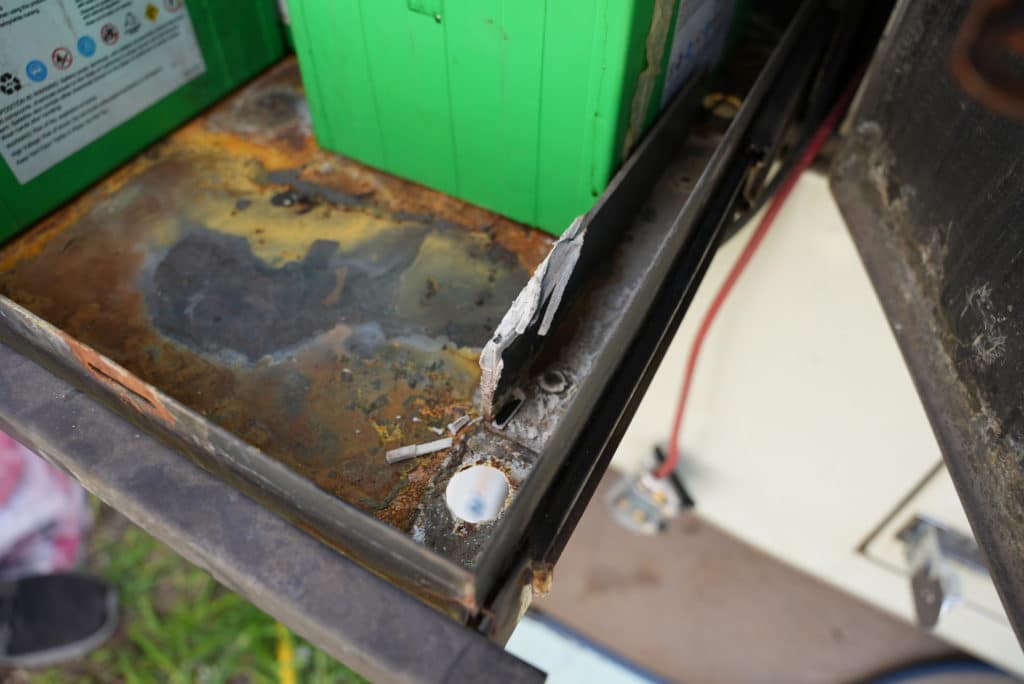
If you’re sticking with lead-acid batteries:
Better yet — avoid corrosion entirely by upgrading to lithium batteries.
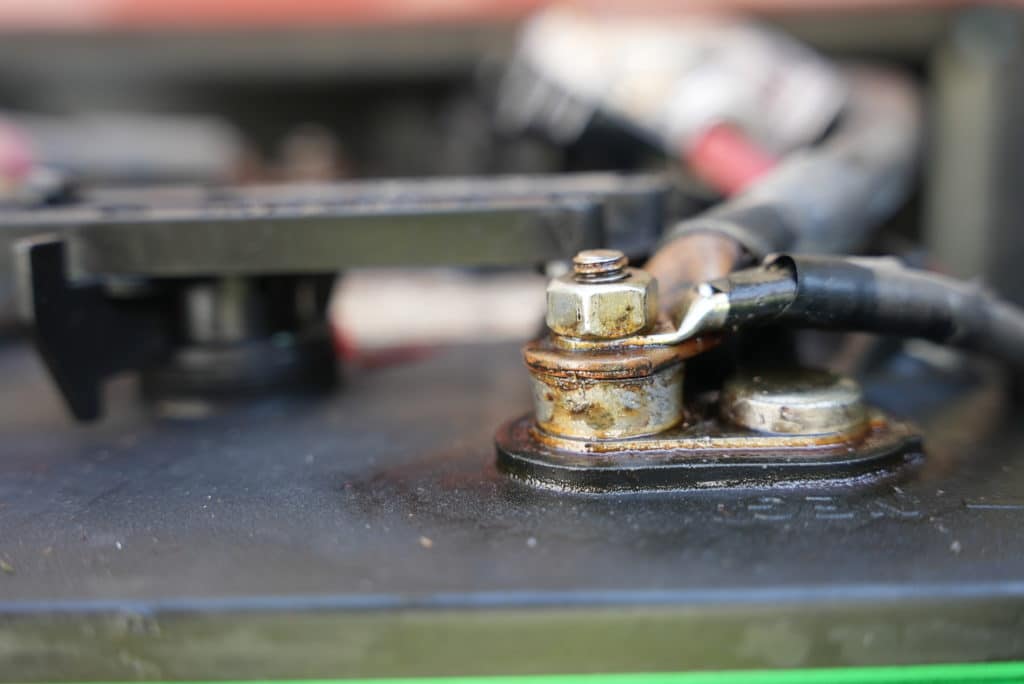
| Feature | Lead-Acid Battery | Lithium Battery (Battle Born) |
|---|---|---|
| Corrosion risk | High | None |
| Venting harmful gases | Yes | No |
| Maintenance required | Frequent | None |
| Lifespan (cycles) | 500–800 | 3,000–5,000+ |
The simplest way to prevent battery corrosion is to use a type of battery that doesn’t corrode under any circumstances — lithium. This more modern battery technology comes with numerous benefits for those willing to make the switch. Lithium batteries are still not the go to for engine starting, but a must for energy storage.
Many typical lead-acid batteries are designed to be opened or at least vented. They have to be in order for the chemical reactions to release gasses that are the results of charging. But lithium batteries are permanently sealed, eliminating the risk of harmful leaks. Barring serious damage, the chemicals that power your lithium battery will stay safely inside.
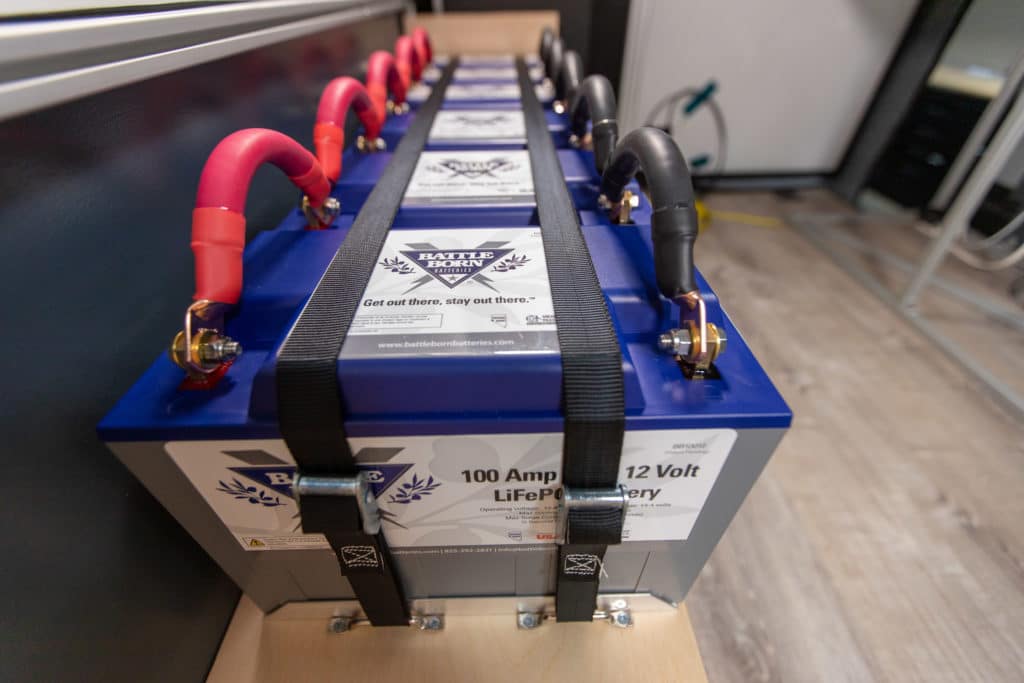
The important differences in battery chemistry between traditional batteries and lithium ones also mean there’s no need to vent fumes. Fumes can be dangerous and corrosive on their own, even when you don’t have battery terminal corrosion to contend with. The sealed nature of lithium batteries means you should never need to vent or release fumes.
Maintenance is just part of life when using standard lead-acid batteries. You have to top them off every few weeks or months to ensure they continue to operate as expected. Even with maintenance-free AGM or sealed lead acid, the batteries need regular equalization or desulfating to keep them operating efficiently. These maintenance-free options also lose electrolytes over time if overcharged or even charged rapidly, causing early degradation by electrolyte starvation.
With a lithium-ion battery, there’s no maintenance required at any point in your ownership. Once you’ve installed the battery, you’re generally hands-off other than charging.
Lithium batteries have so much more to offer than just protection from corrosion and no maintenance. They last substantially longer than traditional batteries, meaning more years between replacements. They’re also much lighter than comparable lead-acid batteries, allowing users to either cut weight or add battery capacity while maintaining the same weight. They also work well at most temperatures, and you can discharge them more fully, eliminating two major weaknesses of traditional batteries.
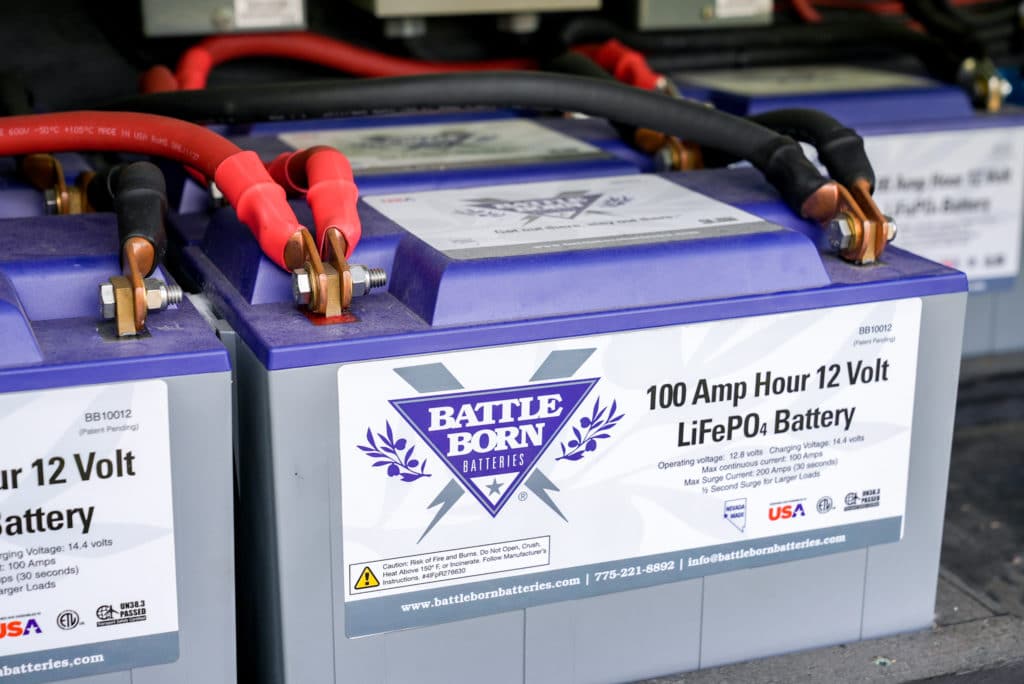
Cleaning battery terminals might fix your problem temporarily, but with lead-acid batteries, corrosion will keep coming back. Switching to Battle Born lithium batteries eliminates the issue entirely — while giving you more power, longer lifespan, and no maintenance.
Stop cleaning. Start upgrading.
We know that building or upgrading an electrical system can be overwhelming, so we’re here to help. Our Reno, Nevada-based sales and customer service team is standing by at (855) 292-2831 to take your questions!
Also, join us on Facebook, Instagram, and YouTube to learn more about how lithium battery systems can power your lifestyle, see how others have built their systems, and gain the confidence to get out there and stay out there.
Shop Best Sellers

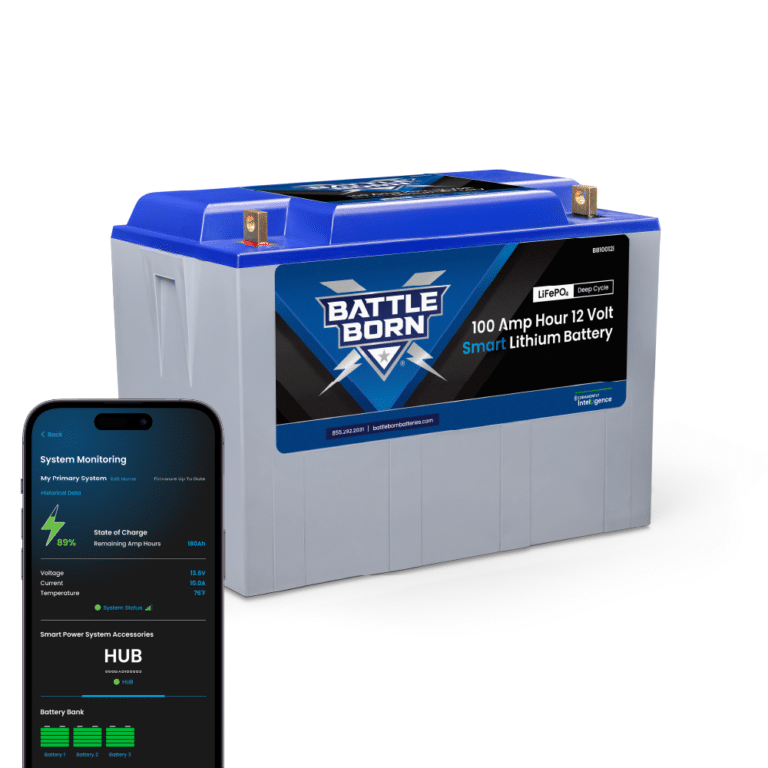

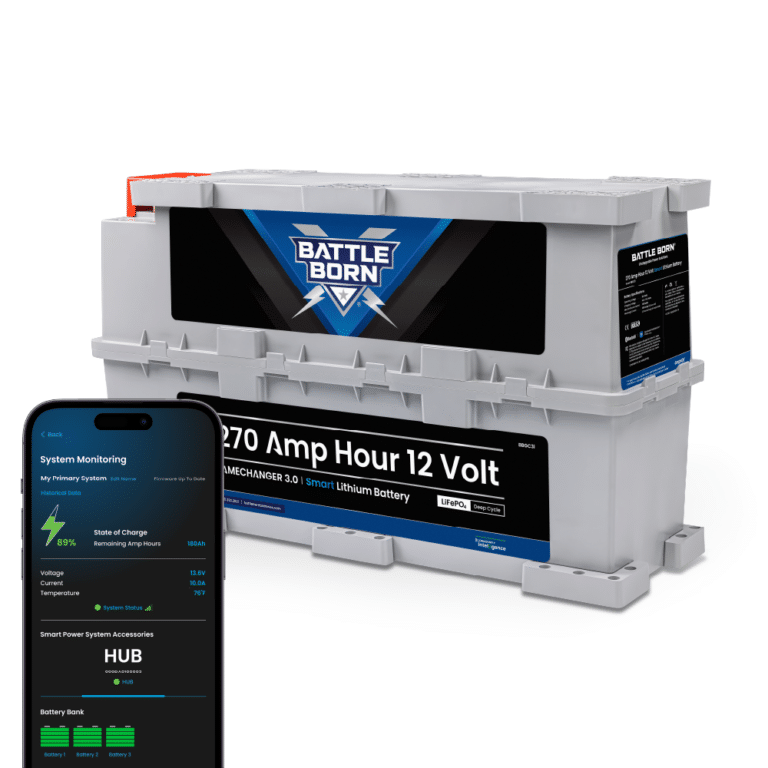




Ask a technical specialist now at 855.292.2831
Stay in the Know